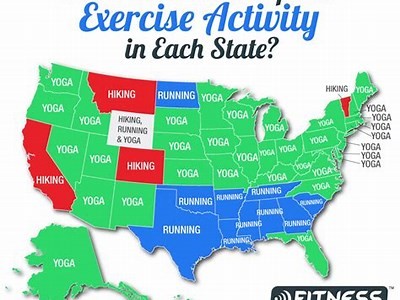Exploring Hard Rock Bet Regulations and Licensing in Various States Across the U.S.
The landscape of online sports betting and casino gaming has evolved dramatically over the past few years in the United States. With the repeal of the Professional and Amateur Sports Protection Act (PASPA) in 2018, states have been scrambling to regulate and license various forms of gambling, including platforms like Hard Rock Bet. This article aims to explore the regulations and licensing processes that Hard Rock Bet navigates across different states, highlighting the differences and similarities that exist.

Online sports betting has gained unprecedented popularity since the legalization movement began. Consumers are drawn to the convenience and accessibility offered by online platforms. Among these platforms, Hard Rock Bet, operated by Hard Rock International, stands out due to its strong branding, extensive market reach, and diverse gaming options.

Each state in the U.S. sets its own regulations surrounding gambling, mainly driven by local preferences and political climates. Therefore, understanding the regulatory environment in each state is crucial for platforms like Hard Rock Bet. This section delves into how various states regulate online betting, including license requirements, age restrictions, and operational stipulations.

New Jersey has been at the forefront of online sports betting. The state requires operators to partner with land-based casinos for licensing. Hard Rock Bet, operating through Hard Rock Hotel & Casino Atlantic City, adheres to the New Jersey Division of Gaming Enforcement regulations, which mandate transparency, fairness, and responsible gambling practices.

In Pennsylvania, the regulatory framework is relatively similar to New Jersey. The Pennsylvania Gaming Control Board oversees all gambling activities. Hard Rock Bet’s entry into this market signifies its compliance with state requirements including substantial licensing fees and strict operational guidelines aimed at consumer protection.

Michigan has also embraced online gaming with a comprehensive licensing process. The Michigan Gaming Control Board regulates the market, ensuring that operators like Hard Rock Bet meet stringent standards concerning software reliability and player security. Colorado
Colorado takes a slightly different approach; operators can acquire a license via an application process that focuses heavily on the integrity of the games provided. Hard Rock Bet’s inclusivity of diverse betting options in Colorado’s competitive market showcases its adaptability to state regulations. Illinois
Illinois presents a unique set of challenges and opportunities for online betting operators. The Illinois Gaming Board regulates the online gaming landscape, and Hard Rock Bet has had to navigate a more complex licensing process involving both a land-based partner and an additional application for the online endeavors. Licensing Challenges and Strategies
Facing a myriad of regulations across states, Hard Rock Bet battles challenges related to compliance, operational consistency, and marketing. Each state's unique demands require tailored strategies for licensing and operation. Compliance with State Laws
Remaining compliant with diverse state laws can strain resources. Hard Rock Bet employs legal teams and consultants to navigate these regulations, ensuring their operations do not fall foul of the law. Compliance audits and consumer protection measures remain priorities across all states. Building Partnerships
Partnerships with local casinos are essential for establishing a foothold in various states. Hard Rock Bet’s collaborations have allowed it to leverage existing brands and customer bases, making entry into new markets smoother. Marketing Strategies
Effective marketing strategies are vital for success in the competitive online betting landscape. Hard Rock Bet has effectively utilized its established brand to attract customers while adhering to local advertising laws and responsible gaming messaging. The Future of Hard Rock Bet
The future of Hard Rock Bet looks promising as more states move towards legalization. Continued developments in technology, alongside shifts in regulatory frameworks, will influence how the platform evolves. The importance of responsible gambling measures will remain a focal point as consumer engagement deepens. Conclusion
Exploring the hard rock bet regulations and licensing landscape across various states reveals both the challenges and opportunities operators face. As more states legalize and regulate online gambling, platforms like Hard Rock Bet need to stay ahead of regulatory changes while meeting consumer expectations for a safe and engaging betting experience.
Unless otherwise specified, the copyright of this article belongs to WillBet: Your Gateway to Premier Online Betting All, please indicate the source for reprinting.
Category: keep em
Title: Exploring Hard Rock Bet Regulations and Licensing in Various States Across the U.S.
Related
Related Sites
- 最近发表
-
- Interwetten Casino Comprehensive Review and Guide to Bonuses Games and Winning Strategies
- Best Ways to Use Interwetten Gutschein Codes for Exclusive Discounts and Bonuses in 2024
- Complete Guide to Unibet Casino Features Bonuses Games and Secure Online Gambling Experience
- Discover Exciting Backseat Gaming Slots Online for Ultimate Fun and Big Wins
- Lothar Matthäus Career Achievements and Partnership with Interwetten Explained in Detail
- Latest Updates and Promotions Available Today on Www Interwetten Com Online Sportsbook Platform
- Discover the Ultimate Betting Experience with Www Willbet 288 Online Platform for Reliable Sports Wagering
- Top Online Casinos for Real Money in 2024 Best Trusted Gambling Sites Reviewed
- Discover the Ultimate Willbet Slot Experience with Exciting Features and Big Winning Chances
- Discover the Ultimate Casino Experience with 1xbet Online Platform for Secure and Exciting Gambling
- 标签列表
-
- online-casino (26)
- live-dealer-games (13)
- sports-betting (65)
- online-gambling (26)
- promotions (20)
- gaming (13)
- online-gaming (32)
- casino-games (42)
- online-slots (16)
- responsible-gaming (17)
- bankroll-management (15)
- responsible-gambling (32)
- Interwetten (68)
- online-betting (62)
- customer-support (16)
- Willbet (15)
- Online-Gambling (22)
- Sports-Betting (26)
- Online-Gaming (24)
- live-betting (19)
- Casino-Games (24)
- mobile-gaming (28)
- betting-strategies (15)
- Online-Betting (25)
- casino-bonuses (18)